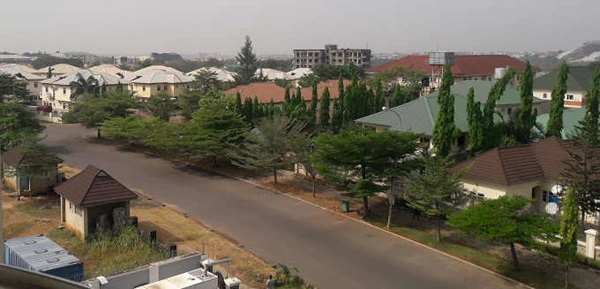According to a Pison Housing Company report on “The State of Real Estate Market in Nigeria,” over 80 percent of Nigeria’s 200 million people live in rented housing, making it one of the most active rental markets in the world.
These renters also spend more than 50 percent of their income on house rent.
However, professional estate agents claim that the unfavourable macroeconomic environment has produced an imbalance in the market, which is not helping the situation. In the major cities of Lagos, Abuja, and Port Harcourt, the most affected areas are office buildings, malls, grocery stores, low-rise, high-rise, and other types of residential buildings.
Concerns are being expressed by current landlords and investors who could lose all of their money due to increasing defaults on lease agreements and rent payments.
While some renters are already facing outright evictions, others are thinking about implementing an eviction moratorium for small enterprises, commercial tenants, and residential tenants.
THE NEWS CHRONICLES understands that some landlords are having trouble collecting rent because long-term renters who are delinquent in their rent payments are making it harder for them to collect their money.
“The increasing number of rent defaults in my homes is getting to me. Bernard Nnaji, a landlord in the Lagos suburb of Idimu, said, “This is why I am considering quitting the tenants and selling off those properties.” Nnaji attributed the state’s landlord problems to the Lagos State Tenancy Law.
According to Nnaji, there are gaps in the process of recovering assets from tenants who are in default, therefore the law does not assist property owners in doing so.
“Due to this, we have cases of tenants living in your property for a year and six months without paying rents and one day they just wake up and leave with the unpaid rent,” he remarked.
Despite the size of the buy-to-let market, Funso Adebayo, an estate manager, observed that new investments are no longer being made in it. He highlighted the dire circumstances facing Nigerians, including rising school fees, high energy costs, and transport fares for short commutes to offices and business premises.
“Normally, the country’s high rental population would present an appealing opportunity for investors, but due to the unfavourable economic conditions in the nation, rent defaults have been on the rise,” stated estate surveyor and valuer Olurogba Orimalade.
In addition to rent defaults, investors are wary of investing in rental properties because they believe it will take longer to recover their costs from the market than it will in buildings intended for direct sale.
“Many investors will avoid this type of investment because, in this part of the world, poverty empowers tenants. Some of them rent houses, pay for the first two years, and then are prepared to fight or take you to court.”
Meckson Okoro, an estate surveyor and valuer, stated in an interview that “given the kind of judicial system we have in Nigeria, the case can drag for more than 10 years and during this period, the tenant will not be paying rent.”
Daniel Ford International managing director Yemi Edun concurred, saying that “most properties’ rental income is five percent of their market value, which gives a minimum of 20–30 years to recoup investment through rent.” He emphasised that investment recovery timeframes can go as high as 30 to 50 years due to low occupancy, the high cost of maintenance and renovations required every five years, and the possibility of vacant properties.
Edun used Dolphin Estate Ikoyi, Lagos, as an example of a comparative analysis of properties in Lagos. He stated that while a duplex’s sales price ranges from N80 million to N100 million, its annual rental income is only about N5 million to N7 million, indicating that it will take at least 20 to 30 years for the investment to be recovered through rental income at a 5 percent rate.



